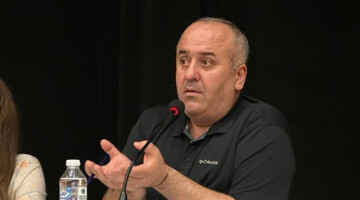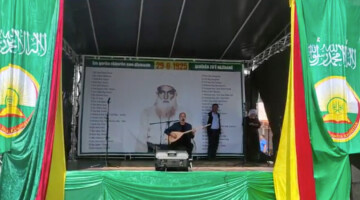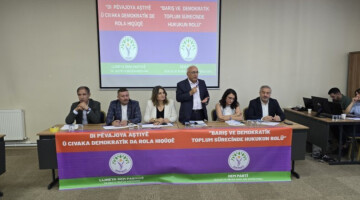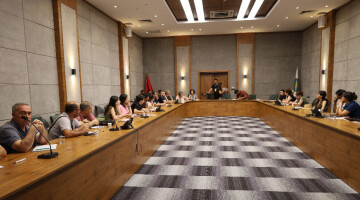The first day of the Permanent People's Tribunal Rojava vs Turkey opened in Brussels on Wednesday.
The tribunal in the Aula QA lecture hall of L'Université Libre de Bruxelles (Free University of Brussels - ULB) is attended by lawyers and human rights activists, as well as victims and eyewitnesses of attacks from different countries. Although the Turkish state was invited to present its defense, no representative was present.
Gerrit Loots made the opening speech, stating the following: “We have come together for this important tribunal for two days. We are organizing this tribunal with the support of the Free University of Brussels. We are here to protect human rights and to defend Rojava. Rojava is a place where women's freedom and democracy are being built, and that is why we believe it must be protected.”
The tribunal continued with speeches by lawyers Jan Fermon and Ceren Uysal from the Team of Prosecutors who spoke of the importance of framing correctly the crimes committed by Turkey, stressing, for example, the control and use of water as a "strategic tool for the war against Kurds."
Prosecution team investigator Efstathios C. Efstathiou presented the case related to "Displacement of population and ethnic engineering in Afrin".
Efstathiou said: "The case of Afrin revolves around the forced displacement of civilians from various villages in 2018, followed by the strategic settlement of families from Damascus Countryside, particularly Ghouta. This resettlement initiative involved a change in names of streets, storefronts, road signs, and other infrastructural elements. The report details how occupying forces engaged in looting properties and orchestrated the resettlement of Sunni Arab families from Eastern Ghouta into the homes of displaced Kurds, as part of a broader plan to alter the demographic makeup of the region. This population engineering scheme, described as a Turkish intelligence strategy, aimed to eradicate the Kurdish presence in the region and erase its Kurdish identity.
In subsequent events, the Turkish-backed "national army" carried out bombings and shelling, leading to clashes with the Manjib Military Council Forces in December 2024. This resulted in the displacement of thousands of families, with a significant influx into the Al-Tabqa area, particularly from Al-Shahba. The total estimated number of displaced individuals reached 120,000, with a demographic breakdown showing 40% children, 40% women, and the remainder comprising young men and elderly individuals. Moreover, the case documents the forced repatriation of refugees in Afrin, further contributing to the demographic transformation of the region. The report includes statistics on the shelters in Tabqa and highlights the basic needs of the displaced population to underscore the scope of the damage caused by these actions."













